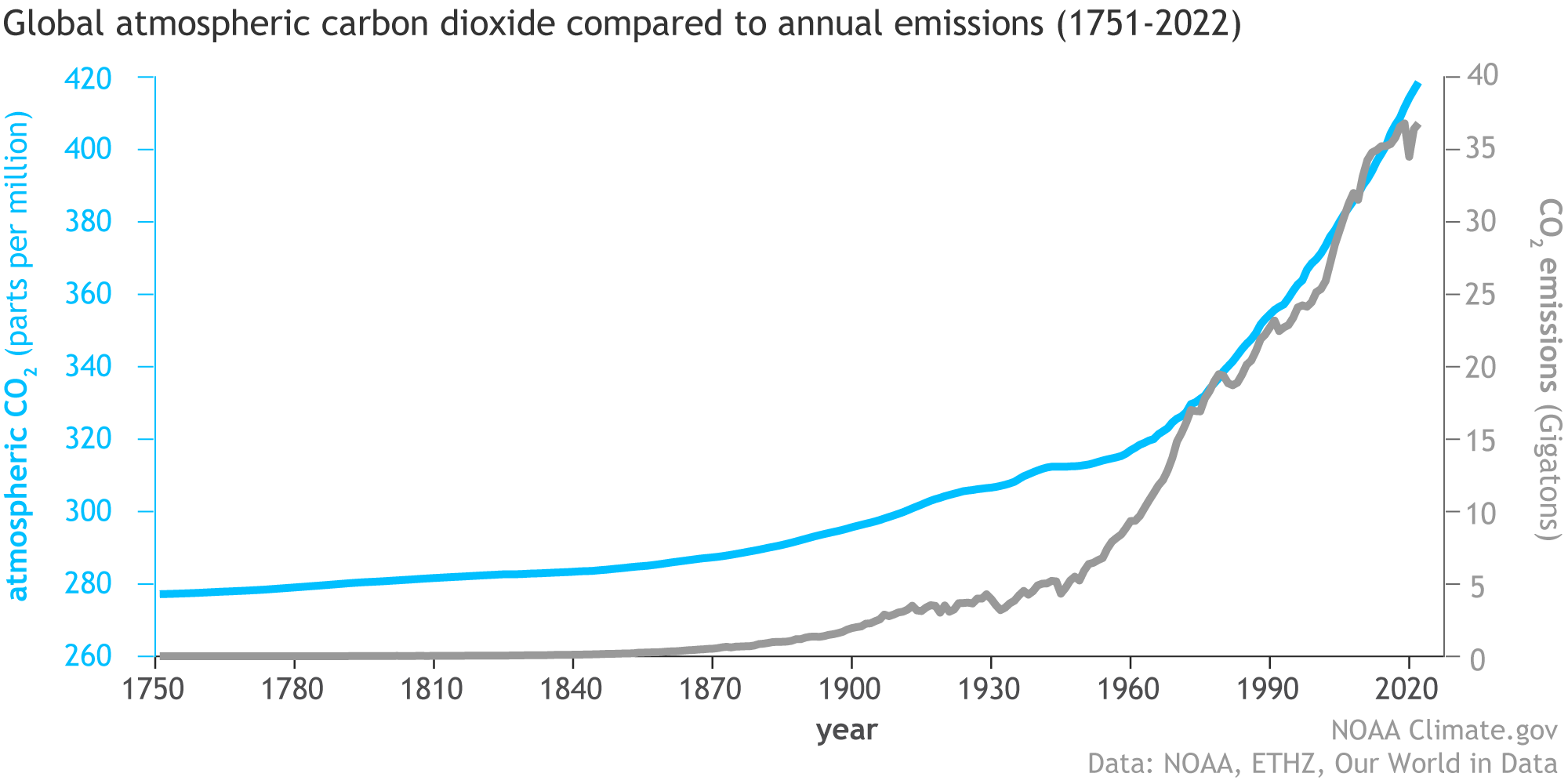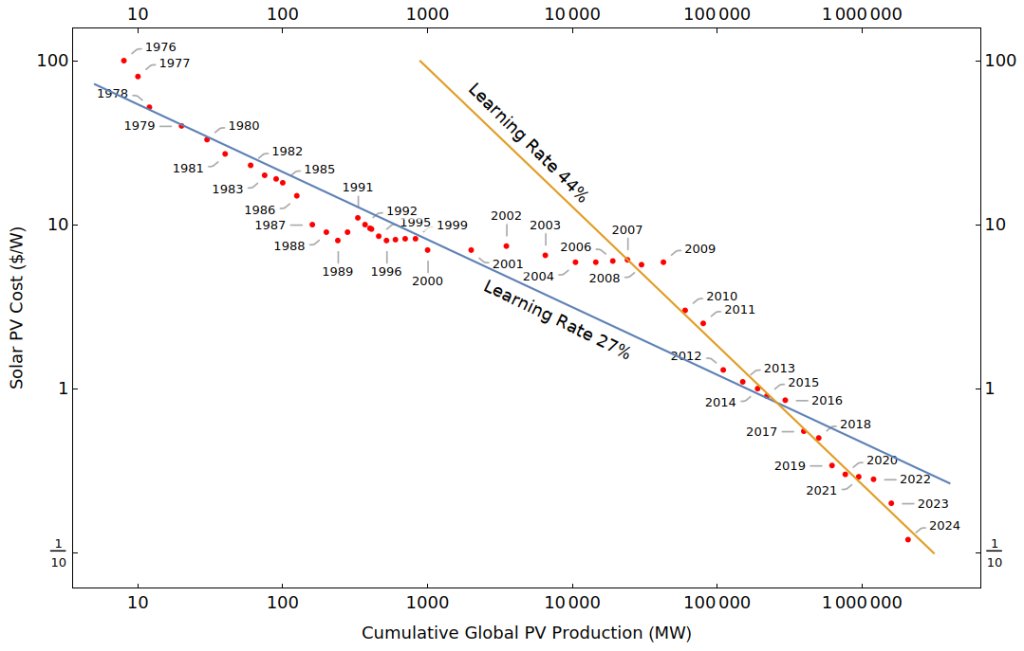Climate Change Reversal: Plans and Hope
This post veers from the normally scheduled software/systems content to climate anxiety. Will we (humanity) revert climate change before it turns into unmitigated catastrophe?
Despite decades of increasingly urgent warnings and astounding cost reductions and production increases in renewable energy the past few decades, we're still pumping carbon and nitrogen into the atmosphere all over the world. Our trusty, modern omni-dominance toolkit of capitalism and science does not seem up to addressing the situation on its own.
Targeted, coordinated intervention is needed, targeting, well, everything we do.
1. Can We Do It?
I (like many technologists, I assume–it goes with the territory) am generally optimistic that enough people with some combination of skill, curiosity, boredom, pain, and itches can figure out any problem on any scale.
Still, it's getting pretty warm. Given how far we've let things go1:

And the staggering cost of updating all infrastructure globally, is it still technically feasible to make changes at the required scale on time?
Let's turn to plans and numbers for some comfort. Here are a couple sources I've read recently that left me hopeful.
2. John Doerr: Speed & Scale
As I was saying:
My answer begins with the creative genius of humankind–and our knack for collaboration. Our shared saga is of an endless frontier, from fire and the wheel to the internet and the smartphone. … Now we need to emulate the scale of the transcontinental railroad and the speed of the race to a COVID-19 vaccine–only bigger and faster. It's an unparalleled endeavor.
The book Speed & Scale presents an extensively referenced plan to net out total annual global emissions, estimated at 59 gigatons from 2019. The plan includes a reduction of 49 gigatons per year, targeting specific pragmatic reductions in each major sector. It calls for removal of another 10 gigatons per year from the atmosphere and proposes dozens of policy changes needed in all countries to make the plan happen. The discussion dove deep enough in each area to convince me it's a plausible plan.
The book took me a long time to read, but I learned a lot and do recommend it (thanks for the rec, Joe!).
Content warning: if you are particularly averse to discussion of OKRs outside of work2, unqualified deference to billionaires, or interspersed defenses of a single VC's investments, you may want to skip to the conclusion and appendix for the concise list of plans.
3. Casey Handmer: The solar industrial revolution is the biggest investment opportunity in history
Ponder this chart:

What should we do with solar and battery storage so cheap that they're ubiquitous? Casey Handmer's post answers this question with a list of every energy-intensive process he can attach a dollar amount and chemical process to, from powering data centers with DC electricity, to desalinating water, to making synthetic fuels (his startup's focus).
Check out the knee in the curve in 2009! A learning rate of 44% means that the cost falls by 44% for every doubling of production, and production is currently doubling roughly every 18 months.
Here’s a free heretical viewpoint, or at least an early prediction.
Solar PV is not just a partial substitute for oil, it’s a cheaper and better energy source in every way that matters.
Corollary: Our techno-capital machine is a thermodynamic mechanism that systematically hunts for and then maximally exploits the cheapest energy it can find. When it unlocks cheaper energy, first coal, then oil, then gas, and now solar, it drives up the rate of economic growth, due to an expanded spread between energy cost and application value.
In other words, we’re now about a decade into a three decade process (the ~sixth industrial revolution) where the entire world economy and its industrial stack is eagerly switching to solar PV as its preferred source of cheap energy, creating enormous value.
The post is a fascinating and enjoyable read. I'd say just read it.
4. Will we do it?
I'll stop writing now before I get too cynical about the political feasibility and just say seeing promising ideas and plausible plans leaves me more hopeful.
Footnotes
Do home CO2 monitors recalibrate their atmospheric baseline every few years? Because they need to!
Or just the idea of a single person taking credit for Google's use of OKRs.
